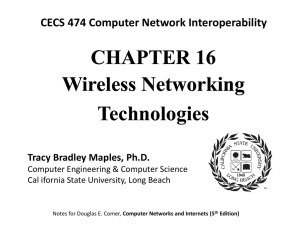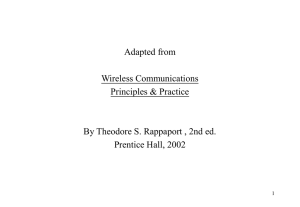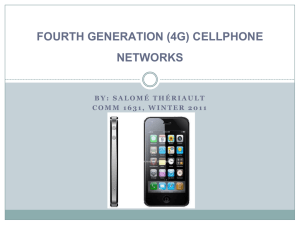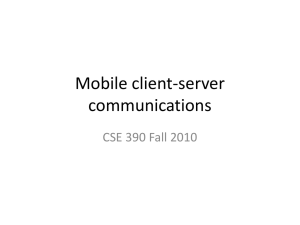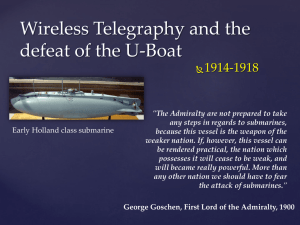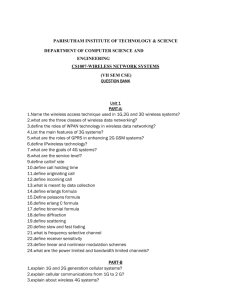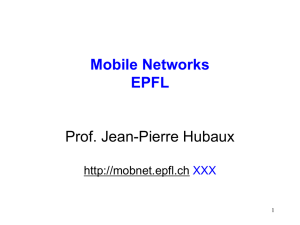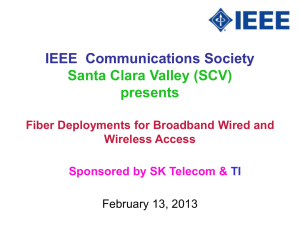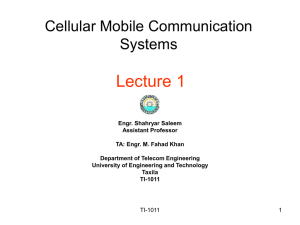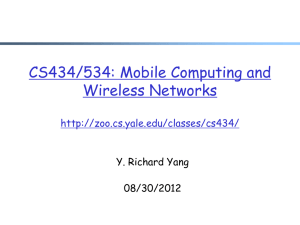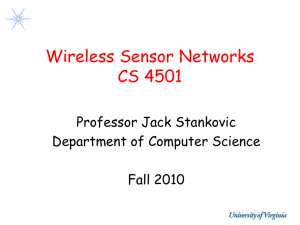Next Generation Network Class: TE
advertisement
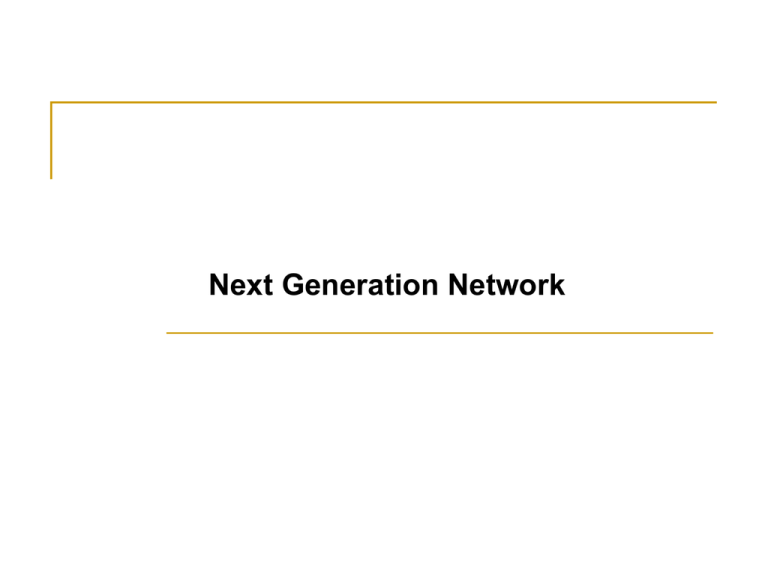
Next Generation Network Class: TE-8 Course Code: Course Description Enhanced knowledge and understanding of networking through study of AMPS. GSM. PAN (Personal Area Network). Wireless Lan (WiFi). Wireless Man (WiMax) UMTS Developing/enhancing skills in Analysis of Wireless network protocols and architecture Research and/or practical skills Course Objectives After the completion of this course, student will: Understanding of the major type of wireless technologies used Learn Recent advances in wireless communications and electronics have enabled the development of low-cost, low-power, multifunctional nodes that are small in size and communicate through short & Long distances. These nodes, which consist of sensing, data processing, and communicating components. Understand the pros and cons of the various technologies used in past present and future Course Outline Week 1 Review of wireless communication fundamentals o Wireless Transmission Impairments o Medium Access methods TDMA,FDMA,CDMA o Direct Spread spectrum Frequency Hoping Week 2-3 Introduction to Wireless Networks o Differences between fixed and wireless networks o Circuit switched and packet switched network o OSI Layers Functionalities in Wireless network o Wireless Network services o Positives and negatives of Wireless Networks Week 4 Wireless personal area networks (WPANS) o IEEE 802.15 std and Task groups Introduction o Blue Tooth Case Study o Blue Tooth Protocol stack o Blue Tooth Profiles o Blue Tooth usage models & Enhanced Data rates Week 5-6 Wireless Local Area Networks (WLANS) o Introduction to IEEE 802.11 std o Wireless LAN Components o Wireless LAN Topologies o WLAN Infrastructure Networks o WLAN Ad hoc Networks o IEEE 802.11 MAC (Medium Access Protocols) o Different IEEE 802.11 Standards o IEEE 802.11 a/b/g o Location Determination in IEEE 802.11e std o Upcoming standard, 802.11n brief introduction Week 7 Wireless Metropolitan Area Networks (WMAN) oOverview of IEEE 802.16 std and variants oConcepts of OFDMA o802.16 example WiMax oWiMax Medium Access protocol oWiMax Quality Of service oMobility in WiMax Week 8-9 Introduction to Cellular networks oCellular networks basic architecture oBasic concepts of cellular networks Paging Hand-off Frequency reuse Cell Types Week 10 Detailed study of Second generation Cellular Networks oBrief history of 2G oGSM standard GSM Services and features GSM System Architecture GSM Channels and frame Structure Short messaging service in GSM Network oEvolution of 2.5G GPRS for GSM GSM Architecture modifications for GPRS GPRS Network Elements GPRS Channels and context oEnhanced Data rates for GSM (EDGE) Technical overview of EDGE Technology EDGE and GPRS comparison Enhancements for higher data rates in GSM Week 11-12 Overview of 3G Cellular systems oBrief Introduction to W-CDMA and CDMA2000 oUMTS a 3G Cellular network UMTS System Architecture and Interfaces UMTS Evolving Services & Application UMTS Core Network and QOS Issues Week 13-14 Introduction to Network Simulators Special research Topics oLike sensor networks oMobile IP oRouting algorithms in Wireless Ad hoc networks Week 15 Presentations Recommended and Reference Books Recommended Book: Wireless Communication Networks By William Stalling Reference Books Wireless Communications :Principal & Practice Principal of Wireless Network: A Unified Approach By Theodore Rappaport By Kaveh Pahlavan, Prashant Khrishnamurthy GSM Network: GPRS Evolution: One Step towards UMTS EVALUATION The final grade will be calculated by using the following items and weights; Items Midterm Final term Class Marks Weight age 25 % 50 % 25 % The distribution of class marks is as follows: Class assignments Class presentations on IEEE publications Class Quizzes 5 15 5 Teaching Methodology Lectures using Multimedia Short Quizzes usually at the end of the Lecture. Detail research on topic assigned to group comprises of 2 to 4 students in the form of assignments. Presentation on any IEEE publication related to the course at the end of the course Performance/Progress Based mainly on lectures and presentations Atleast 1 presentation by every student 3 quizzes will be taken 3 Case studies (Assignments)
